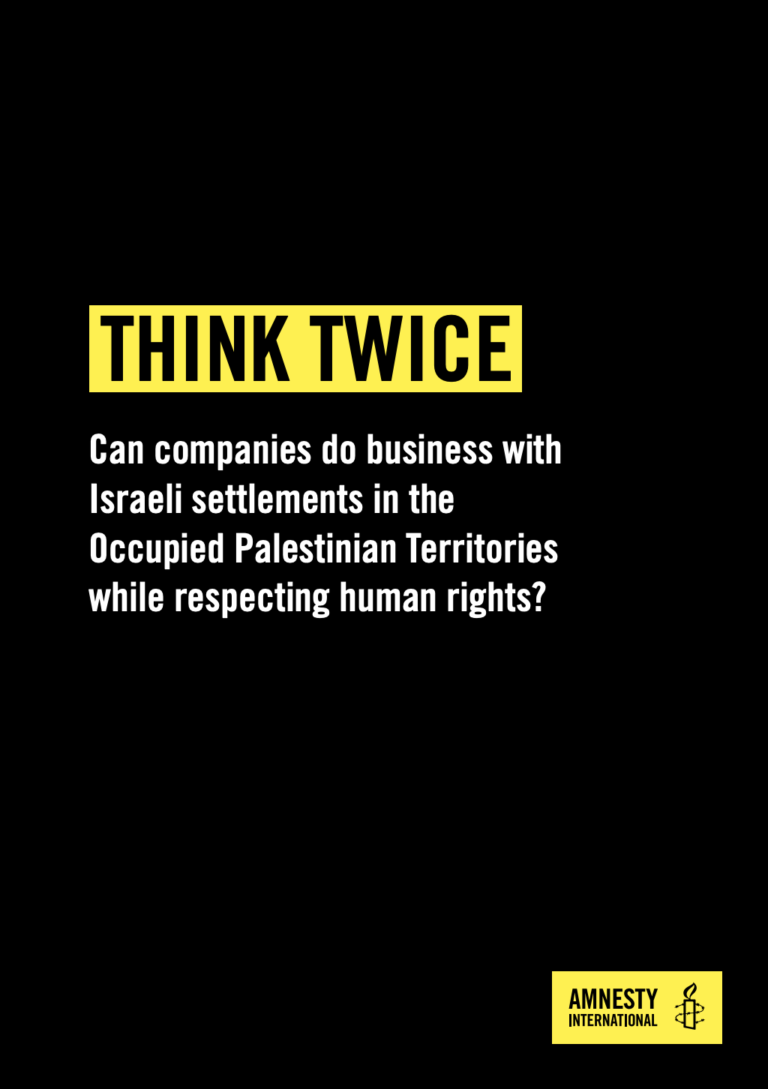Doing business in occupied territories carries with it risks, dilemmas and potential liabilities for companies. The sources of information available to companies to address these risks are limited.
This briefing is intended to provide companies with a framework for examining their business interests and relationships with Israeli settlements in the Occupied Palestinian Territories. It covers issues that are relevant to companies in all industry sectors and at all stages of their trade and investment relationships with these settlements. It reflects a growing trend of criminal and civil cases against businesses based on their alleged complicity in serious human rights violations, including war crimes.
Amnesty International expects companies to make business decisions that align with applicable international laws and standards and that meet their responsibilities within that framework. This briefing explains how these laws, standards and responsibilities apply to the situation in the Occupied Palestinian Territories.

